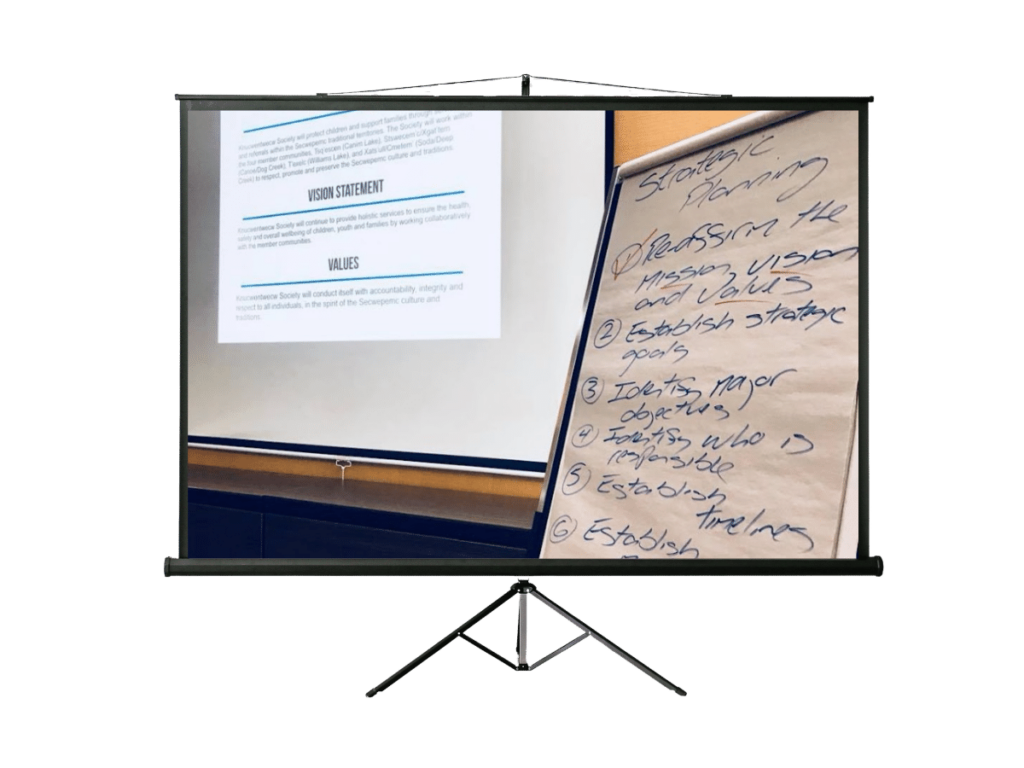All nonprofits have concrete reasons for existing, but many still struggle to communicate their unique reason for being to the audiences they serve and the people outside of them. In this episode of the Strategic Nonprofit Podcast, host Trista sits down with Claire Crum to discuss the importance of a mission statement and how it relates to a not-for-profit.
Also read: 18 Popular Nonprofit Strategic Planning Models & Tools
What is a mission statement for a nonprofit?
A nonprofit mission statement is a foundational component that every organization needs. As it is an actionable declaration of purpose. It describes your organization’s fundamental purpose, what value it delivers, who it serves and how. In other words, why does your nonprofit exist? As a result, it acts as a statement that your team members can rally around. Then use it to tell stories with marketing to increase the support for your organization.
Why are mission statements important for nonprofits?
If you haven’t defined where it is that you are going, then it makes it really hard to get there in any sort of efficient or impactful way.
Claire Crum
Ultimately, mission statements for nonprofits communicate their purpose within their impact space. Your mission is what you do and is the basis of your strategy. Hence why having a well-defined mission allows organizations to be much more effective and impactful with the work they’re doing. Mostly because they’re following a blueprint of values. That way, everyone inside and outside of the organization is clear on the work you’re doing. Rather than being easily mistaken for someone different in the market.
How often should you revisit your mission statement?
Claire suggests that your organizations revisit mission statements quarterly, which seems like it might be a lot, but it’s not. That’s because you’re not reviewing it necessarily with the purpose to change it. Rather, to get on that same page and refresh your and your team’s memory.
Another way to determine whether it’s time to revisit your mission statement is by reading it. Then ask yourself if it could apply to another organization or institution? If so, that’s really an indicator that it probably needs to be tweaked a little bit. Overall, it needs to be more specific to you and the work you’re doing.
Nonprofit Mission Statements Best Practices
1. Break down your mission statement into achievable steps
Your nonprofit organization’s mission is achieved by working on targeted objectives. Many of those objectives will fall into buckets or pillars for your organization—things like financial steadiness, visibility, programming, and operational efficiencies. When you have identified those, you can then use the mission statement as the compass for what you’ll be working on for the next six months to a year, which is where you can become more effective.
2. Align your team with the mission
Communicate
Work as humans to get on the same page.
Claire Crum
It’s imperative to be in good communication with your team members -talking to them about where they’re at and discussing how they’re feeling about things with the organization and understanding them from an empathetic perspective.
Encourage ideas
By asking for team members’ input, it helps them feel as though they are here to not just complete tasks for the organization but to make a real difference in your impact space.
More about Claire Crum
Claire Crum is a certified Director of Operations who is on a mission to support nonprofit leaders to increase their capacity to reach next-level milestones. Claire is also the CEO of Calm Ops, an organization that helps CEOs and Executive Directors expand their ability to reach next-level milestones. Calm Ops provide high-level strategic planning, team leadership, and essential operational support to give impact-driven entrepreneurs the freedom to create, lead and maximize the vision they have for their social enterprise or NPO.
Create a brighter future for your organization with AMC
AMC’s skilled strategic planning facilitators can help you navigate complex issues and build the transformative plan you need for success.
Whether you have a specific goal, troublesome problem or a new exciting opportunity you need assistance navigating -AMC’s customized strategic planning sessions will help.
Contact us today to learn how AMC’s Strategic Planning facilitators can help your organization develop, improve, and grow.

